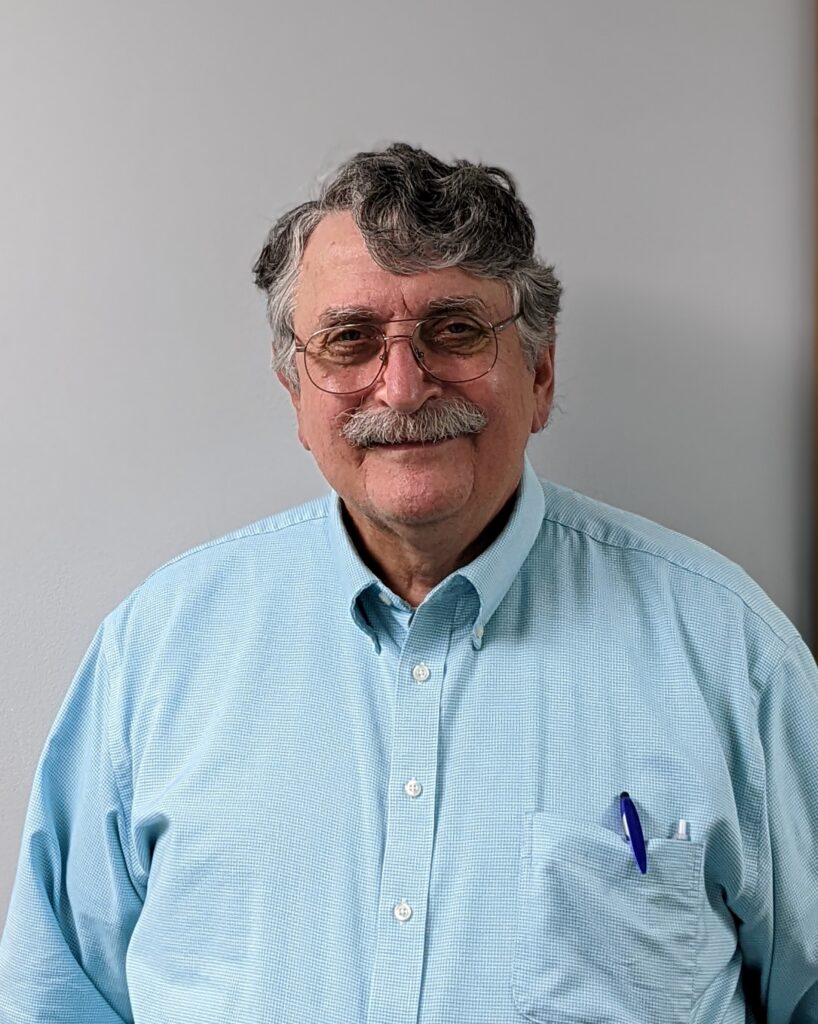Mr. Dromboski, or Bob as our team calls him, has been working with the team in the BI Center for Recovery-Oriented Therapy (CT-R) for over five years. Bob is a lifelong learner, an ardent supporter of CT-R, and a Beck Institute donor. We spoke with Bob recently to learn more about why he chose to pursue training with us, and how that training has impacted his work.

How did you become interested in CT-R and the recovery movement?
After returning from my service in the Vietnam War, I began my career in mental health by teaching art classes to students with mental health challenges at the Philadelphia Academy of Fine Arts. I was so moved by the students – their nonverbal communication, their creativity. It sparked curiosity in me. After continuing my studies (mainly in psychoanalysis at the time), I earned a Master’s in counseling psychology. I worked as a psychologist in the prison system for 20 years and conducted assessments for over 1,000 individual inmates. After that, I joined New Vitae Wellness and Recovery, an agency devoted to integrated residential, behavioral, and mental health treatment. The agency participated in an innovative Recovery-Oriented Cognitive Therapy (CT-R) training initiative sponsored by Philadelphia’s Community Behavioral Health Corporation.
At New Vitae, we work with truly challenging cases – from addiction to brain injuries and other mental health challenges. We received training and consultation in CT-R from Drs. Paul Grant and Ellen Inverso to help our clients with intensive needs progress toward real and meaningful recovery. A lightbulb went off. This treatment was pivotal for our team and our clients. This was something to be excited about.
“This treatment was pivotal for our team and our clients. This was something to be excited about.”
Now you’re taking trainings in CBT at Beck Institute. Tell us a little about why you want to learn more about CBT and how that ties into your CT-R work?
After working with the Beck Institute Center for CT-R, I realized there was a depth of Cognitive Therapy theory and application that I didn’t have. I was responsible for disseminating this information to current and new employees to ensure the succession of the practice at our organization, so taking a deeper dive with courses has been important to me. Currently, I am interested in the crossovers between CBT and CT-R. What I love most about BI’s approach is that the courses teach you how to incorporate skills from different therapeutic modalities within the framework of CBT. It always surprises me how much I can learn in just one course.
What work are you most proud of?
My proudest moments in my work have involved pulling teams together who define what it means to be doing good work in a challenging environment. For example, in the prison system, we faced staff cuts, reduced funding, and yet managed to decrease the suicidality rate of inmates experiencing mental health challenges.
In my current role, I see patients recover themselves with CT-R treatment. They are accepted and welcomed back into a meaningful life. It is amazing to see the impact of treating people like people.
What do you like about taking courses online? What serves as your inspiration to continue learning?
Taking BI training courses online has had such a democratizing effect – anyone can participate in these courses from their own homes. The accessible and friendly nature creates a safe space to exchange what you may have thought was best practice for a new, masterful approach.
My inspiration has long been Dr. Aaron T. Beck. He wanted to alleviate suffering for people, not just create a citation in the dictionary of human knowledge. This is about impact on populations of need.
Participation in the BI Excellence Summit has also been an inspiration – the event allows me to interact with CBT experts that I would otherwise never get to see.
Thanks, Bob. Anything else you’d like to cover?
After a career like mine, training with Beck Institute is icing on the cake! Each class I take leaves me wanting more, and I know the resources are infinite at BI. I support the programs here because I truly believe they make a difference every day.
Join Bob in supporting our work with a donation today! Donations support scholarships, program development, research, and more.
You can learn more about Recovery-Oriented Cognitive Therapy (CT-R) and Cognitive Behavior Therapy (CBT) by attending one of our live virtual workshops or enrolling in our on-demand course Recovery-Oriented Cognitive Therapy for Serious Mental Health Conditions.